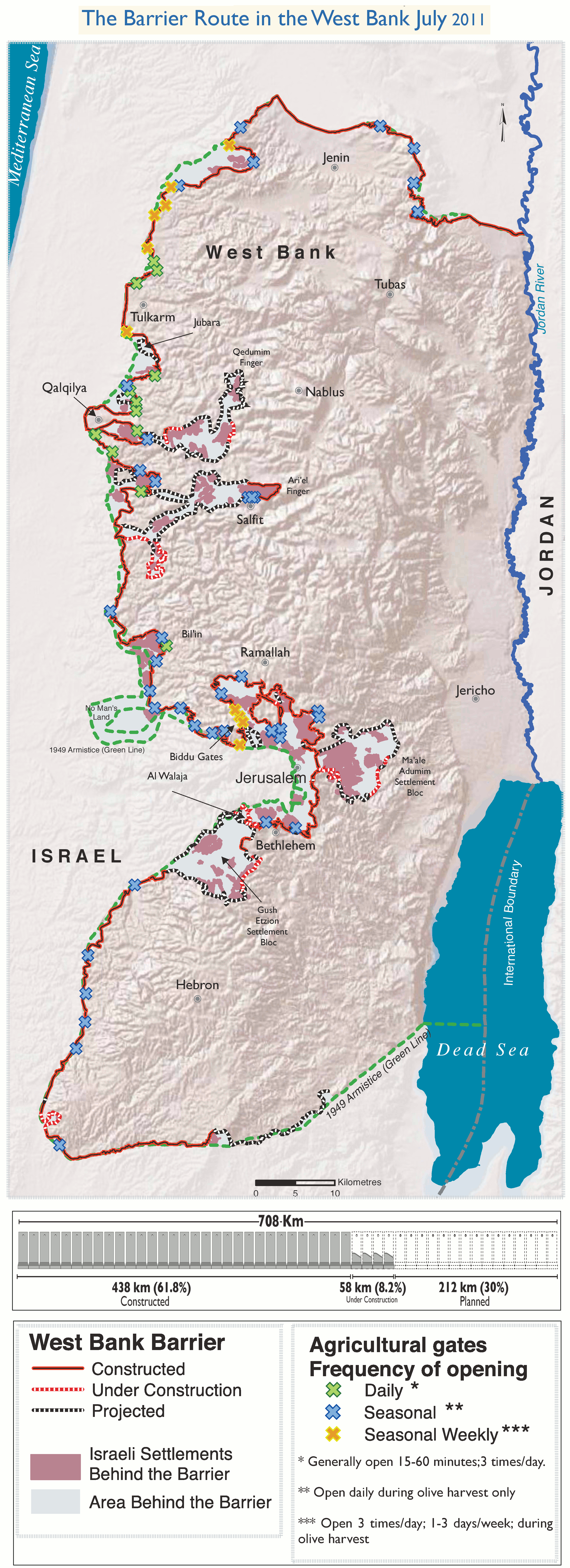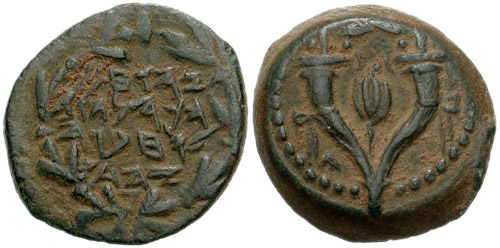|
Moshe Basson
Moshe Basson (( he, משה בסון; born 1950) is an Israeli chef, restaurateur, and food folklorist. An early proponent of the Slow Food movement in Israel, he is the owner and head chef of The Eucalyptus restaurant in Jerusalem. He specializes in traditional regional cuisine, biblical ingredients, and the use of wild plants and herbs that he gathers himself on foraging expeditions in the Jerusalem hills. He is a member of the Israeli-Palestinian group Chefs for Peace and a two-time winner of the international Couscous Fest in Italy. Early life Moshe Basson was born in Iraq in 1950. His mother Esperanza and her family were natives of Amarah. He immigrated to Israel with his family when he was nine months old. The family was assigned to a refugee absorption camp in the Talpiot neighborhood of Jerusalem. Arriving in 1951 during the Passover holiday, they were allocated a shack with corrugated tin walls and no floor. Utilities in the neighborhood initially consisted of a public wa ... [...More Info...] [...Related Items...] OR: [Wikipedia] [Google] [Baidu] |
The Eucalyptus
The Eucalyptus ( he, האקליפטוס) is a Jerusalem fine dining restaurant. It is noted for its use of biblical ingredients and the use of wild plants and roots foraged from the nearby hillsides, and for preparing traditional and innovative Levantine cuisine, Levantine, Arab cuisine, Arab, and Jewish cuisine. History The Eucalyptus was founded by Moshe Basson, a native of Iraq who moved to Israel with his family as a refugee when he was an infant. Basson's parents owned a bakery in Jerusalem's Beit Safafa neighborhood, and cultivated a vegetable garden and raised chickens to supplement their government food rations. In the early 1960s Moshe planted a eucalyptus seedling in the garden. Twenty-five years later his brother Ya'acov built a restaurant around the tree, with the Trunk (botany), bole standing in the middle of the dining room and the branches extending above the roof. He brought in Moshe as the cook, and Moshe soon took over the place. Like the bakery Basson's father had ... [...More Info...] [...Related Items...] OR: [Wikipedia] [Google] [Baidu] |
Beit Safafa
Beit Safafa ( ar, بيت صفافا, he, בית צפפה; lit. "House of the summer-houses or narrow benches") is a Palestinian town along the Green Line, with the vast majority of its territory in East Jerusalem and some northern parts in West Jerusalem. Since the 1949 agreements, the neighborhood had been divided by the Green Line. Until 1967, the East Jerusalem part remained under Jordanian rule while the northern parts became under Israeli rule. Beit Safafa covers an area of 1,577 dunams. In 2010, Beit Safafa had a population of 5,463. History During the Crusader era, the village was known as ''Bethafava'' or ''Bethsaphase''.Pringle, 1997, pp2829 Baldwin I granted the village as a fief to the Knights Hospitallers sometime before September 1110. A tower in the village is dated to the Crusader period. In the 1360-1370, part of the revenue from Beit Safafa went to the Madrasa ''Al-Manjakiyya''com. on the Haram esh-Sharif in Jerusalem. Ottoman era The village ... [...More Info...] [...Related Items...] OR: [Wikipedia] [Google] [Baidu] |
Christian Science Monitor
Christians () are people who follow or adhere to Christianity, a monotheistic Abrahamic religion based on the life and teachings of Jesus Christ. The words ''Christ'' and ''Christian'' derive from the Koine Greek title ''Christós'' (Χριστός), a translation of the Biblical Hebrew term ''mashiach'' (מָשִׁיחַ) (usually rendered as ''messiah'' in English). While there are diverse interpretations of Christianity which sometimes conflict, they are united in believing that Jesus has a unique significance. The term ''Christian'' used as an adjective is descriptive of anything associated with Christianity or Christian churches, or in a proverbial sense "all that is noble, and good, and Christ-like." It does not have a meaning of 'of Christ' or 'related or pertaining to Christ'. According to a 2011 Pew Research Center survey, there were 2.2 billion Christians around the world in 2010, up from about 600 million in 1910. Today, about 37% of all Christians live in the Amer ... [...More Info...] [...Related Items...] OR: [Wikipedia] [Google] [Baidu] |
The Jewish Week
''The Jewish Week'' is a weekly independent community newspaper targeted towards the Jewish community of the metropolitan New York City area. ''The Jewish Week'' covers news relating to the Jewish community in NYC. In March 2016, ''The Jewish Week'' announced its partnership with the online newspaper ''The Times of Israel''. Later in 2016, ''The Jewish Week'' acquired the ''New Jersey Jewish News''. In July 2020, ''The Jewish Week'' suspended publication of its weekly print publication, and in January 2021 announced its acquisition by 70 Faces Media, the publisher of the Jewish Telegraphic Agency and other Jewish brands, under whose umbrella it continues as an all-digital brand. Editorial staff Gary Rosenblatt was the editor and publisher from 1993 to 2019. Andrew Silow-Carroll took over in September 2019. Rosenblatt served as editor at large and continued to write for the paper and be involved in several of its educational projects. Phillip Ritzenberg was publisher and edito ... [...More Info...] [...Related Items...] OR: [Wikipedia] [Google] [Baidu] |
Israeli West Bank Barrier
The Israeli West Bank barrier, comprising the West Bank Wall and the West Bank fence, is a separation barrier built by Israel along the Green Line and inside parts of the West Bank. It is a contentious element of the Israeli–Palestinian conflict: Israel describes the wall as a necessary security barrier against Palestinian terrorism, whereas Palestinians describe it as an element of racial segregation and a representation of Israeli apartheid. At a total length of upon completion, the route traced by the barrier is more than double the length of the Green Line, with 15% of its length running along the Green Line or inside Israel, and the remaining 85% running as much as inside the West Bank, effectively isolating about 9% of the land and approximately 25,000 Palestinians from the rest of the Palestinian territory. The barrier was built by Israel following a wave of Palestinian political violence and incidents of terrorism inside Israel during the Second Intifada, which ... [...More Info...] [...Related Items...] OR: [Wikipedia] [Google] [Baidu] |
Second Intifada
The Second Intifada ( ar, الانتفاضة الثانية, ; he, האינתיפאדה השנייה, ), also known as the Al-Aqsa Intifada ( ar, انتفاضة الأقصى, label=none, '), was a major Palestinian uprising against Israel. The general triggers for the unrest are speculated to have been centred around the failure of the 2000 Camp David Summit, which was expected to reach a final agreement on the Israeli–Palestinian peace process in July 2000. Outbreaks of violence began in September 2000, after Ariel Sharon, then the Israeli opposition leader, made a provocative visit to the Temple Mount in Jerusalem; The visit itself was peaceful, but, as anticipated, sparked protests and riots that Israeli police put down with rubber bullets and tear gas. High numbers of casualties were caused among civilians as well as combatants. Israeli forces engaged in gunfire, targeted killings, and tank and aerial attacks, while the Palestinians engaged in suicide bombings, g ... [...More Info...] [...Related Items...] OR: [Wikipedia] [Google] [Baidu] |
Kashrut
(also or , ) is a set of dietary laws dealing with the foods that Jewish people are permitted to eat and how those foods must be prepared according to Jewish law. Food that may be consumed is deemed kosher ( in English, yi, כּשר), from the Ashkenazic pronunciation (KUHsher) of the Hebrew (), meaning "fit" (in this context: "fit for consumption"). Although the details of the laws of are numerous and complex, they rest on a few basic principles: * Only certain types of mammals, birds and fish meeting specific criteria are kosher; the consumption of the flesh of any animals that do not meet these criteria, such as pork, frogs, and shellfish, is forbidden. * Kosher mammals and birds must be slaughtered according to a process known as ; blood may never be consumed and must be removed from meat by a process of salting and soaking in water for the meat to be permissible for use. * Meat and meat derivatives may never be mixed with milk and milk derivatives: separate equipm ... [...More Info...] [...Related Items...] OR: [Wikipedia] [Google] [Baidu] |
Safra Square
Safra or SAFRA may refer to: People (surname) * Alberto J. Safra (born 1979/1980), Brazilian banker *Edmond Safra (1932–1999), Syrian-Brazilian banker *Jacob Safra (1891–1963), Syrian banker *Jacqui Safra (born 1948), Swiss investor and actor *Joseph Safra (1939–2020), Brazilian banker *Lily Safra (1934–2022), Brazilian philanthropist and socialite *Moise Safra (1934–2014), Brazilian businessman and philanthropist *Rav Safra (280–338), Babylonian Amora *Shmuel Safra, Israeli computer scientist * Vicky Safra (born 1952/1953), Brazilian-born philanthropist People (given name) *Safra Catz (born 1961), American business executive Organizations *Safra Group, an international network of companies controlled by the Joseph Safra family **Banco Safra **Bank Jacob Safra Switzerland **Safra National Bank of New York * SAFRA Radio, a Singaporean broadcasting company *SAFRA National Service Association, Singapore NSmen Recreation Club Places *Safra, Iran, a village in Khuzestan Pr ... [...More Info...] [...Related Items...] OR: [Wikipedia] [Google] [Baidu] |
John Hyrcanus
John Hyrcanus (; ''Yōḥānān Hurqanōs''; grc, Ἰωάννης Ὑρκανός, Iōánnēs Hurkanós) was a Hasmonean ( Maccabean) leader and Jewish high priest of the 2nd century BCE (born 164 BCE, reigned from 134 BCE until his death in 104 BCE). In rabbinic literature he is often referred to as ''Yoḥanan Cohen Gadol'' (), "John the High Priest". Name Josephus explains in ''The Jewish War'' that John was also known as "Hyrcanus", but does not explain the reason behind this name. The only other primary source, the Books of the Maccabees, never used this name with respect to John. The single occurrence of the name ''Hyrcanus'' in 2 Maccabees 3:11 refers to a man to whom some of the money in the Temple belonged during the c. 178 BCE visit of Heliodorus. The reason for the name is disputed amongst biblical scholars, with a variety of reasons proposed: * Familial origin in the region of Hyrcania on the Caspian Sea * A Greek regnal name, which would have represented closer ... [...More Info...] [...Related Items...] OR: [Wikipedia] [Google] [Baidu] |
Foodie
A foodie is a person who has an ardent or refined interest in food, and who eats food not only out of hunger but also as a hobby. The related terms "gastronome" and "gourmet" define roughly the same thing, i.e. a person who enjoys food for pleasure. But the connotation of "foodie" differs slightly—a sort of everyman with a love for food culture and different foods, but some, like Paul Levy, say the foodie can still be a "foodist". Earliest uses of the word Foodie is a relatively new word in our language, having only been adopted in the early 1980s, yet it comes from the much older word food, which has existed in our language for as long as there has been anything that could be considered English. The "foodie"—not as elitist as a gourmet, more discriminating than a glutton—was first named in print in the early 1980s. The term came into use almost simultaneously in the United States and Britain. Priority goes to Gael Greene, who, in June 1980, wrote in ''New York Magazi ... [...More Info...] [...Related Items...] OR: [Wikipedia] [Google] [Baidu] |
Nana 10
Nana 10 ( he, נענע 10), previously Nana (lit. mint), was an Israeli Web portal. The website was owned by Israeli web and communication company 013 Netvision, and Israeli news Channel 10, and consisted of Internet forums, which it was especially known for, news, culture sections, an Internet magazine and more. The site was closed after the channel's move to their new website, 10.TV. See also *Hadashot 10 ''Hadashot 13'' ( he, חדשות 13, lit= hannel13 News) is one of the three major brands of Israeli television news programmes. Produced for Reshet 13 by ''Hadashot 10 LTD'' ( he, חדשות 10 בע״מ, lit=10 News Ltd.), a subsidiary of Reshet. ... (The TV company providing the news for "nana 10" portal) External links *Nana 10 website Online companies of Israel Israeli news websites Israeli brands Mass media in Givatayim Channel 10 (Israeli TV channel) {{Israel-company-stub ... [...More Info...] [...Related Items...] OR: [Wikipedia] [Google] [Baidu] |
Trunk (botany)
In botany, the trunk (or bole) is the plant stem, stem and main wooden axis of a tree, which is an important feature in tree identification, and which often differs markedly from the bottom of the trunk to the top, depending on the species. The trunk is the most important part of the tree for timber production. Occurrence Trunks occur both in "true" woody plants and non-woody plants such as palm (plant), palms and other Monocotyledon, monocots, though the internal physiology is different in each case. In all plants, trunks thicken over time due to the formation of secondary growth (or in monocots, pseudo-secondary growth). Trunks can be vulnerable to damage, including sunburn. Vocabulary Trunks which are cut down for making lumber are generally called logs; if they are cut to a specific length, called bolts. The term "log" is informally used in English language, English to describe any felled trunk not rooted in the ground, whose roots are detached. A tree stump, stump is the pa ... [...More Info...] [...Related Items...] OR: [Wikipedia] [Google] [Baidu] |









